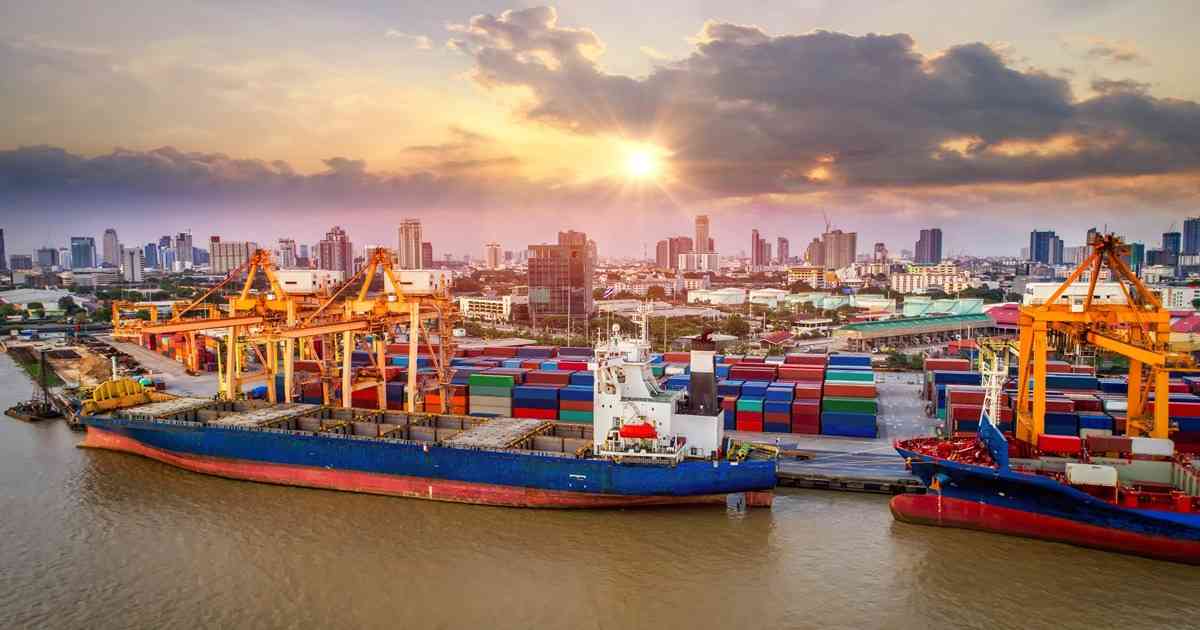
Transportation
Article | April 26, 2023
Autonomous robots have transitioned from a futuristic system that only a few enterprises could afford to a sustainable, well-established solution in a wide assortment of warehouse automation projects in recent years.
With the flourishing transportation and logistics industry and increasing e-commerce penetration worldwide, innovative technologies are revealing promising opportunities throughout the supply chain.
Warehouse Automation: Driving Value in the Supply Chain
Historically, autonomous robots have been used to perform tedious and repetitive tasks, necessitating sophisticated programming for setup and incorporation while lacking the dexterity to easily adjust operations.
As autonomous robots become more intelligent, their setup times decrease, they need less monitoring, and they are able to work alongside their human counterparts. The benefits for the future supply chain are increasing as autonomous robots become more capable of working day and night with more consistent levels of productivity and quality and performing tasks that individuals should not, cannot, or do not want to do.
Autonomous robots drive advancements and add value to the supply chain, primarily by increasing revenue potential and lowering direct and indirect operating costs. Autonomous robots, in particular, can assist:
Boost efficiency and productivity.
Lower risk, error frequency, and rework rates.
Enhance employee safety in high-risk workplaces.
Handle low-value, routine tasks so people can work together on strategic projects that can't be done by machines.
Raise revenue by optimizing order fulfillment rates, and delivery speed, and, ultimately, increasing customer satisfaction.
Sneak Peek into the Future of Autonomous Robot
Autonomous robots are expected to witness strong growth in the coming years. These robots will become more common in the future supply chain as technology advances, allowing them to operate with more human-like abilities. Improvements in haptic sensors, for example, will enable these robots to grasp objects varying from multi-surfaced metal assembly parts to fragile eggshells without requiring changes to robotic components or programming. This will encourage companies operating in the industry to increase their research and development activities and introduce innovative and advanced supply chain technologies.
Read More

Warehousing and Distribution
Article | June 27, 2023
Discover future trends & innovations at upcoming warehousing conferences and events. Explore technologies, growth opportunities and networking possibilities to improve the supply chain operations.
Warehousing and distribution play crucial roles in the logistics industry. To enhance the expertise and gain a competitive edge, professionals must attend logistics conferences in 2023, including the supply chain management and warehousing conferences and events. These gatherings offer a platform for industry leaders to exchange ideas, learn from experts, and explore the latest advancements.
The following warehousing conferences and events will provide tailored discussions on warehouse optimization, inventory management, and process improvement.
1. ASCM Connect 2023: Europe
June 27-28, 2023 | Brussels (Belgium)
ASCM CONNECT 2023: Europe, held at DoubleTree by Hilton Brussels City, is a must-attend event for supply chain professionals. This networking opportunity will offer educational sessions, trending topics, and valuable insights from industry leaders like Matteo Coppola (Integrated Business Planning Director Kellogg), Hans Ehm (Senior Principal Engineer Supply Chain and Head of Supply Chain Innovations Infineon), Juliana Hsuan (Professor, Operations Management and Supply Chain Management Copenhagen Business School), and more. Logistics and supply chain industry leaders will benefit from the event by gaining knowledge on supply chain management trends and innovations. One of this logistics events further equips professionals with the tools to streamline operations, improve efficiency, and reduce costs.
2. Innovation and Industrial Logistics (ICIIL 2023)
August 25-27, 2023 | Tapi (Macao)
The 9th International Conference on Innovation and Industrial Logistics (ICIIL 2023) is an exclusive supply chain conference for logistics and warehouse management industry leaders. The conference will include topics like purchasing, supply chain management, transportation, and warehouse optimization. This warehouse event will offer valuable insights into the latest trends and advancements. Professionals will be able to network with experts and peers, fostering collaboration and partnerships. Attending ICIIL 2023, held at the Macau University of Science and Technology, will enable attendees to enhance their expertise, optimize operations, and stay ahead in the dynamic supply chain and logistics industry.
3. ASCM Connect 2023: North America
September 11-13, 2023 | Louisville (Kentucky)
An indispensable supply chain event for logistics industry leaders will have 120+ speakers, 70+ education sessions, and eight innovation labs. This premier event will offer a comprehensive program with thought-provoking insights, hands-on workshops, and networking opportunities. Keynotes by influential figures such as John J. Sullivan (Former United States Ambassador to Russia (2020-2022)), Elliott Harris (United Nations Chief Economist), and Amanda Manna (Futurist and Vice President, Singularity University) will further enhance the experience. Attending ASCM CONNECT 2023 will enable professionals to stay ahead in the dynamic supply chain industry and encourage them to enlarge their network with people having different ideas from the industry to improve business operations.
4. Automotive Logistics and Supply Chain
September 26-28 2023 | Dearborn (Michigan)
A pivotal event for the supply chain and logistics industry, Automotive Logistics & Supply Chain Global will offer the opportunity to regain control and confidence in North America's automotive supply chain after years of crisis. It will explore the impact of policies on supply chain operations and emphasize the importance of building diverse and inclusive teams. Key speakers include Renee Wawrzynski (Executive Director of Global Logistics at General Motors), Chris Styles (Vice President of Logistics at Lucid Motors), and Oliver Bilstein(Vice-President Production Control, Logistics, and Material Control. BMW Manufacturing Co.), and others will share valuable insights. In addition, this warehouse conference event will be equipping professionals to navigate the challenges of a rapidly changing industry.
5. LogiPharma
October 04-06, 2023| Boston (Massachusetts)
This event for pharma, biotech, and medtech supply chain executives in North America, has been a beacon of innovation and best practices since its inception in 2002. From a network monitoring expert's perspective, attending LogiPharma offers industry leaders in the supply chain and logistics industry an unparalleled opportunity to stay ahead of the curve. By bringing together supply chain leaders from the manufacturing and distribution sectors, LogiPharma will promote collaboration and enhance supply chain management effectiveness. Attending this logistics and pharmacy conference will enable executives to be updated with industry trends and build vital relationships through interactive sessions and workshops by key speakers like Samir Gami (Sr. Director of Advanced Customer Capabilities Johnson & Johnson - Janssen), Ed Ram (Sr. Director, Supply Chain Sagent Pharmaceuticals), David Sokoloff (Director, Global Logistics & Materials Management Novavax), and more. Prepare to transform the business and build a resilient supply chain in the dynamic pharmaceutical industry.
6. Logistics Technology USA 2023
November 1-2, 2023 | Dallas (Texas)
To foster growth and disruption in the logistics industry, Logistics Technology USA is the premier event where logistics technology innovators gather. This warehouse management conference will offer logistics service providers the opportunity to experiment, break barriers, and create the future of logistics. With a focus on cutting-edge technologies like machine learning, drones, robotics, and artificial intelligence, attendees can gain valuable insights to enhance their businesses. Key speakers will share their expertise, including Pritha Mehra (Chief Information Officer and Executive Vice President of USPS), Ben Cubitt (Senior Vice President of Procurement and Engineering Uber Freight), Geoff Kelley, and others. Further, the conference will offer valuable sponsorship opportunities to get your brand in front of prospects and clients who can transform your business. The networking sessions also facilitate meaningful connections, helping kickstart sales cycles and accelerate business development efforts.
7. 7th Annual European Supply Chain Management Summit
November 07-08, 2023 | Las Vegas (US)
The European Supply Chain Management Strategies Summit is a leading supply chain conference that will offer senior leadership case studies and solutions. This event's primary focus will be to improve logistics and inventory management, implement IoT and new technologies, enhance supplier collaboration and transparency, and mitigate process risks. Additionally, the event is CPD accredited, ensuring the best opportunities for professional development. The event will also be enriched with inputs from the following key speakers, including Angelo Dalporto, a renowned expert in logistics and inventory management, Damodar Hegde, an authority on implementing IoT and new technologies, Leon van der Merwe, a specialist in supplier collaboration and transparency, Luke Kerr, a seasoned professional in risk mitigation strategies, and Sebastian Sołtys, an expert in workforce leadership and engagement. Their valuable perspectives and knowledge will help improve the supply chain warehousing and distribution strategies.
8. Future Supply Chain
November 28-29, 2023 | Torrey Pines (California)
Unlock the secrets to achieving total visibility in your supply chain at the upcoming digital supply chain event. With a staggering 69% companies lacking complete transparency, this event is a must-attend for supply chain and logistics industry leaders. The event will provide practical insights from end-user case studies and guide how to implement transformative technologies to propel the supply chain forward. The event will also boast an impressive lineup of key speakers, including Dave Campbell (Associate Director of Supply Chain Transformation, Proposals, & Comms), Sree Duggineni (Executive Director, Supply Chain Operations), Imara Charles (Vice President, Process and Digital Excellence), Marcus Handy (Director of Supply Chain and Operations), Ivy Huynh (Head of Logistics, Supply Chain), Reginald Mingot Blanc (Vice President of Operations & Integrated Supply Chain), Alexandra Garyn (Senior Director of Supply Chain Management), and Hari Perumal (Chief Supply Chain Officer).
9. The Global Destination for Logistics and Supply Chain Innovation
February 05-07, 2024 | Caesars Forum (Las Vegas)
Experience the future of logistics at Manifest, the premier gathering that will unite Fortune 500 global supply chain executives, logistics service providers, innovators, and investors in Las Vegas. This exclusive event will showcase the latest advancements in logistics tech and end-to-end supply chain practices that will help shape the industry's landscape. Supply chain and logistics experts will have unprecedented access to industry leaders and thought-provoking sessions that will provide valuable insights into emerging trends and strategic opportunities. Key speakers include Zane Adams (Co-Founder of EVP Strategy and Development FedUp Foods PBC), Moid Alwy (Chief Supply Chain Officer at EVP), Ian Arthurs (CEO & Founder at Circular.co), Andy Bair (Founding Partner at Sway Ventures), Amiee Bayer-Thomas (Chief Supply Chain Officer at Ulta Beauty), and Stephanie Benedetto (CEO & Founder of Queen of Raw).
10. IWLA Convention & Expo 2024
April 21-23, 2024 | Orlando (Florida)
The 2024 IWLA Convention & Expo is an event for warehousing leaders of North America's logistics and supply chain industry. This supply chain convention will offer a unique opportunity to connect, learn, and network with fellow logistics leaders. Whether you're a first-time attendee or a returning participant, the convention promises valuable experiences and connections that can enhance one's profession in the warehousing industry. Joining this event will provide insights into the latest trends and best practices and foster new relationships and a wealth of ideas to drive warehouse logistics operations forward. In addition, this premier gathering of warehouse industry professionals will also emphasize the solutions and experiences of the key speakers from the industry.
Key Takeaway
Attending logistics conferences such as the supply chain management conferences and warehousing conferences & events in 2023 is essential for professionals in the logistics industry. These events offer valuable opportunities to exchange knowledge, learn from experts, and explore the latest advancements in supply chain management and warehousing practices. Professionals will be able to optimize their supply chains, enhance warehouse operations, and gain a competitive edge in the dynamic business landscape by participating in these gatherings. Drive business success by leveraging the techniques and networking opportunities, these industry-leading events provide.
Read More

Management
Article | June 21, 2023
Risk management has been a problem for as long as supply chains have existed. Because of the interdependence of all its connections, even a minor issue in one isolated region has the potential to jeopardize a whole global supply chain. As a result, when major global trends and events occur, the potential for widespread supply chain disruption is enormous.
Global supply chain risks and market disruptions have reached an all-time high. The most notable of them is the COVID-19 pandemic. In a 2020 survey, the Institute for Supply Management discovered that 95% of companies faced operational issues due to the pandemic. As a result, business executives all around the globe believe that if they want to be more resilient and competitive in the present market, they need to modernize and make significant changes to their supply chain strategy.
Other recent factors that have had a significant impact on traditional supply chain practices include the fast pace of change in consumer behaviors and a pretty unstable trade and political environment.
In the last ten years, e-commerce spending has tripled, and internet shopping had increased by 149% in 2020 compared to the previous year. With the growth of e-commerce, there has been a rise in customer demand for faster delivery and more personalized shopping experiences. The Amazon Effect refers to the growing expectation for same-day delivery and its effect on businesses and logistical networks. To be resilient enough to react to these rising demands, supply chain managers have had to make fast and significant modifications to their logistics and warehousing networks, as well as discover new ways to collaborate with third-party fulfillment partners.
Even before the impact of COVID-19, American businesses were attempting to reduce their dependence on foreign manufacturers and suppliers. Foreign tariffs and trade policies had become more unpredictable by 2019, and businesses were seeking technological solutions to make the supply chains more self-sufficient and resilient. As a result, integrating digital transformation and Industry 4.0 technology into supply chain operations is quickly becoming a top concern for global business leaders.
How does Supply Chain Resilience Work?
A flexible contingency plan and the ability to react swiftly to operational disruptions are important characteristics of effective supply chain management. However, to be truly resilient, a supply chain must be able to predict and anticipate disruptions and, in many cases, avoid them entirely.
Strategic supply chain planning is an important step in achieving resilience because it synchronizes all supply chain components and increases visibility and agility. Supply and demand needs are better understood, and production is synchronized due to supply chain planning. This integrated, forward-thinking approach assists businesses in better anticipating problems, reducing the impact of supply chain disruptions, and improving overall operations.
When a business has the digital systems to analyze and make sense of Big Data, it significantly improves supply chain resilience. Artificial intelligence-enabled systems can curate disparate data sets from across the business and the globe. To discover trends and opportunities, news, competitor activity, sales reports, and even customer feedback can be examined together. The system's connected devices are constantly monitored, providing real-time insights about where and how processes can be automated and improved. For instance, AI, machine learning, and modern databases acquire and handle Big Data and analyze and learn from it in an almost infinite number of ways. This enables intelligent automation across the network and provides supply chain managers with the real-time insights they require to respond quickly to disruption and unexpected events.
Supply chain managers have traditionally sought to limit the number of partners and suppliers in their network to minimize operational and logistical complexity. This approach is based on the stability of the social, environmental, and political systems. Unexpected disruptions in one region can slow or even stop network operations across the board. Supply chain resilience technologies, such as blockchain, sensors, and advanced analytics, enable supply chain managers to monitor complex partnerships and supplier contracts even in the most remote parts of their network.
Profitability in the supply chain has always been dependent on minimizing excess and keeping inventories as lean as possible. Capacity and inventory buffers are expensive, and supply chain managers have often bet against disruptions to keep prices low. When the pandemic struck, many businesses discovered the real cost of the gamble. Supply chain operations can involve on-demand manufacturing, virtual inventories, and predictive demand forecasting using digital supply chain technologies to remain resilient, even in times of unexpected disruption.
Benefits of a Resilient Supply Chain
Finding a successful balance between supply and demand is a significant issue for any supply chain manager in an increasingly competitive market. Many businesses that have cut costs on diversification, supply chain technology, and other resilience measures have lately discovered the true cost of those choices. However, when businesses engage in diversification, supply chain technologies, and other resilience measures, they can achieve a variety of business benefits, including:
More efficient operations: Better resilience often results in less risk and a greater capacity to invest in innovation and growth. For example, according to a 2020 global business analysis conducted by Bain and Company, businesses that prioritized their investment in supply chain resilience had up to 60% quicker product development cycles and were able to increase production capacity by up to 25%.
Enhanced productivity: Resilient supply chain solutions lead to the overall system increased productivity. According to a McKinsey 2020 survey, supply chain leaders from across the world report increased productivity due to resilient supply chain systems, and 93% of those surveyed plan to prioritize resilient supply chain strategies for investment in the next year.
Risk reduction: Supply chain activities are often the most vulnerable to risk and loss in many businesses. Supply chains, by nature, are geographically distributed and functionally complex. As a result, supply chains are particularly vulnerable to risk. Resilient supply chain technologies minimize risk by providing insight into all network operations and enabling companies to improve and adjust their processes and logistics in real-time.
Technologies for an Agile Supply Chain
Digital transformation and modern supply chain technology provide businesses with the resilience and competitive advantage they need to react swiftly to disruptions and opportunities.
Artificial intelligence (AI): AI-powered supply chain systems can offer deep procedural and operational insights by gathering and analyzing data from many sources. Predictive analytics and Big Data analysis can assist in predicting risk and demand and recommending measures and reactions in the company.
Machine learning: Machine learning enables the discovery of patterns in supply chain data and the identification of these influential factors - all while constantly learning. This enables supply chain managers to react fast with the finest workflows and operational strategies available.
Industrial Internet of Things (IIoT): The IIoT network in a supply chain comprises connected devices and objects with sensors and unique IDs that allow them to transmit and receive digital data. They collect information and communicate with the central system. AI can analyze and understand this data to enable quick decisions and intelligent automation of supply chain operations and procedures.
Additive (3D) printing: Smart factories can quickly reprogram 3D printers to produce specific products on-demand without disrupting regular business operations in the long run. The accessibility of potential virtual inventories enables supply chains to defend themselves against disruption.
Robots and autonomous things: Robots and drones, which are intelligently automated for speed, efficiency, and accuracy, can adapt their operations on the go to meet quickly changing requirements. They also reduce the risk of harm by eliminating overly repetitive or dangerous tasks from human workers.
Modern databases: The resilient supply chain solutions rely on Big Data, advanced analytics, and real-time insights from modern databases. Supply chain technology can be improved to operate faster and most resilient when equipped with a modern ERP system and an in-memory database.
Resilience means more than just surviving a disruption in operations. A fully resilient supply chain and businesses survive hardship and use it to innovate and improve their business. Building a resilient supply chain is very important in this modern era because disruptions like a pandemic, wars, climate change, etc., are occurring a lot these days. A resilient supply chain helps businesses to survive and thrive even during tough times. To read more about ways to boost supply chain performance, click here.
FAQ
What is supply chain resilience?
Supply chain resilience refers to the supply chain's capacity to be prepared for unexpected risk events, react and recover swiftly to potential disruptions, and grow by shifting to a new, more desirable state in order to improve customer service, market share, and financial performance.
How is supply chain resilience measured?
A supply chain's resilience index is calculated by aggregating its company's resilience index. Given that supply chain company's performance influences overall supply chain performance, supply chain resilience should be measured using the companies' resilience index.
{
"@context": "https://schema.org",
"@type": "FAQPage",
"mainEntity": [{
"@type": "Question",
"name": "What is supply chain resilience?",
"acceptedAnswer": {
"@type": "Answer",
"text": "Supply chain resilience refers to the supply chain's capacity to be prepared for unexpected risk events, react and recover swiftly to potential disruptions, and grow by shifting to a new, more desirable state in order to improve customer service, market share, and financial performance."
}
},{
"@type": "Question",
"name": "How is supply chain resilience measured?",
"acceptedAnswer": {
"@type": "Answer",
"text": "A supply chain's resilience index is calculated by aggregating its company's resilience index. Given that supply chain company's performance influences overall supply chain performance, supply chain resilience should be measured using the companies' resilience index."
}
}]
}
Read More

Software and Technology, Transportation
Article | December 7, 2022
Contents
1. Accessing The State and Federal Benefits
2. A Learning Portal to Educate Rural Communities On EV Charging
3. The Significance of an Equitably Relevant EV Charging Network
Electric Vehicles (EVs) are making waves in cities and are more than just the latest trend in transportation. With the advancement of the EV charging network and its deployment across urban areas, experts are asking what’s next and how this growth can be replicated in rural areas.
1. Accessing State and Federal Benefits
Based in Oregon, Forth is an EV research and advocacy group that recently announced a partnership with General Motors to build grant templates that can help rural communities win and access state and federal grant money to build EV charging networks. The templates will be provided free of charge and cover 80% of a complete grant. Geoff Gibson, the senior program manager for Forth, believes this will give rural communities the impetus to seek out the grant money and get over the initial hurdle of framing a grant proposal.
2. A Learning Portal to Educate Rural Communities on EV Charging
Forth also announced the slated launch of a learning portal that will address the lack of know-how on deploying a charging program for EVs. The portal will empower communities with not just the knowledge of implementing charging programs but also their significance and long-term impact on the community. The learning portal will tentatively go live in 2023 and will be free for local communities, counties, cities, and states, as well as community organizations. The program will be accessible for a year and could be further extended.
According to Steve Lommele from the Joint Office of Energy and Transportation, he reiterated the importance of building a national EV charging network. He states that this is the first time a major program has been put in place that covers all 50 states in the U.S., including Puerto Rico and Washington D.C.
3. The Significance of an Equitably Relevant EV Charging Network
Deploying EV charging stations in rural areas has to be meaningful for the communities that will be using them. Forth’s Geoff Gibson emphasizes that the needs of the communities need to be given priority when designing the charging network. For instance, DC charging or charging that is publicly accessible should be preferred at trailheads.
EVs as part of our transport in the future is inevitable and charging networks and program need to be prioritized to ensure all communities are able to access its benefits equally.
Read More